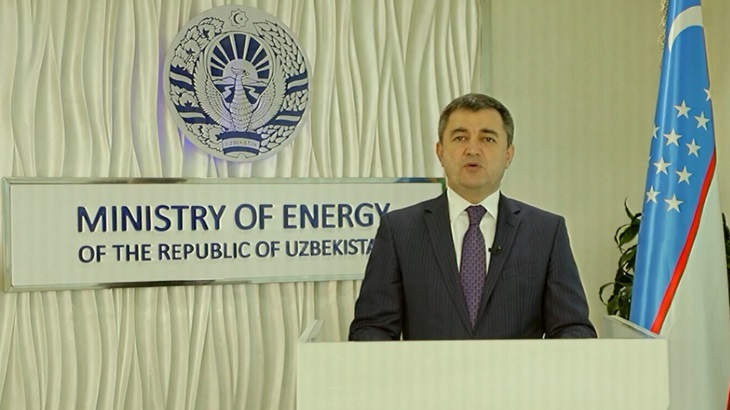Uzbekistan and Russia signed an intergovernmental agreement on cooperation in the use of nuclear energy for peaceful purposes in December 2017, and in September 2018 a further agreement was signed for the construction by Russian state nuclear corporation Rosatom of two VVER-1200 reactors. These are to be commissioned in 2028 and 2030, respectively. Uzbekistan later announced it wanted to build four units and not just two as previously stated.
Sultanov thanked the IAEA for its significant role in mobilising joint efforts to combat the COVID-19 virus, by providing countries with diagnostic kits and detection equipment. He noted these were based on technologies first developed in the nuclear sector. In particular, he thanked the IAEA for diagnostic test systems supplied to three medical centres in Uzbekistan.
"Uzbekistan stands shoulder-to-shoulder with the IAEA and fully supports their aims of promoting the use of nuclear science and technology to ensure peace, stability, cooperation and development. I would also like to thank the IAEA for its continued support of our initiatives and the training of Uzbek citizens through the ongoing Technical Cooperation Programme," Sultanov said.
He also reiterated Uzbekistan's support for nuclear disarmament, non-proliferation of weapons of mass destruction and the country's continued fulfilment of Treaty obligations in this regard.
As part of the country’s preparation for construction of its first nuclear power plant, and to create the necessary regulatory infrastructure, the minister announced the government will soon approve a 'Strategy for the Management of Spent Nuclear Fuel, Radioactive Waste and Decommissioning of Nuclear Installations'; and establish procedures for licensing and obtaining regulatory permits for activities in nuclear energy. This follows recent procedural progress on safety inspections of nuclear facilities by Uzbek regulatory bodies, he said.
Draft decisions on Uzbekistan's accession to four international conventions have also been prepared, and their adoption is expected by the end of 2020. These are: the Vienna Convention on Civil Liability for Nuclear Damage; the Convention on Early Notification of a Nuclear Accident; the Convention on Nuclear Safety; and the Convention on Assistance in the Case of a Nuclear Accident or Radiological Emergency.
As part of Uzbekistan's commitment to transparent communications about its nuclear power programme, Sultanov confirmed that an IAEA mission of international experts will conduct an Integrated Nuclear Infrastructure Review (INIR) of the country’s progress towards the infrastructure required for a safe and sustainable nuclear power programme. The review is scheduled to take place by the end of this year.
"In order to ensure transparency and informing the world community of the status of the nuclear power programme, a report was sent in June 2020 on self-assessment for the second phase, preliminary INIR missions on 19 questions regarding nuclear power infrastructure, included in the IAEA Milestones Approach document, " he said.
The document was successfully accepted and posted on the IAEA website and a visit from IAEA experts at the preliminary stage of the INIR mission is expected next month, he said.
"We believe in the principle importance that the Agency remains at the forefront of international efforts to provide assistance to states that have decided to establish national nuclear power programmes," he said.
The text of the minister’s statement (in Russian) is here.





_52351.jpg)


_15863.jpg)






